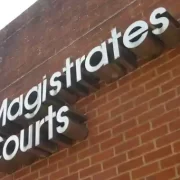Nigerian Government Sets Stricts Conditions for Churches, Mosques to Reopen
Lawyard is a legal media and services platform that provides…
The Presidential Task Force on COVID-19 has said under the new guidelines it recently released to ease the lockdown, worship centers will only be permitted to operate for a maximum of one hour each time they meet.
The Secretary to the Government of the Federation, Boss Mustapha, had on Monday announced the relaxation of the ban placed on worship centers which was part of measures to limit the spread of COVID-19.
Mr Mustapha said the relaxation will span for a period of four weeks effective from June 2.
Despite lifting the ban, the chairman of the Task Force, Sani Aliyu, said churches and mosques are only allowed to operate between 5am 8pm daily.
Mr Aliyu while speaking at the daily PTF briefing on Tuesday said each service should be a maximum of an hour to allow time for disinfection.
He also said Friday prayers in mosques should not exceed one hour.
“For churches, each service should be for a maximum of an hour with an interval of 30 minutes in between services to allow time for disinfection.
“Mosques may open 15 minutes before and 10 minutes after prayers. The total time for Friday prayers should not exceed an hour.
“Islamiya schools, Sunday schools, night vigils, and children classes are to remain suspend “, he said.
Mr Aliyu said church or mosque facilities must be structured to ensure observation of physical distancing by members.
He urged all worshippers to wear a face mask as part of measures to limit the spread of the virus.
Worshippers must sanitise their hands before entry.
It is important to note that due to the nature of religious congregations, places of worship are particularly recognized to have a major potential for spreading COVID-19 infection amongst worshippers.
“Therefore, places of worship that are not able to comply with these measures should not be allowed to operate by state governments,” he said.
Lawyard is a legal media and services platform that provides enlightenment and access to legal services to members of the public (individuals and businesses) while also availing lawyers of needed information on new trends and resources in various areas of practice.











